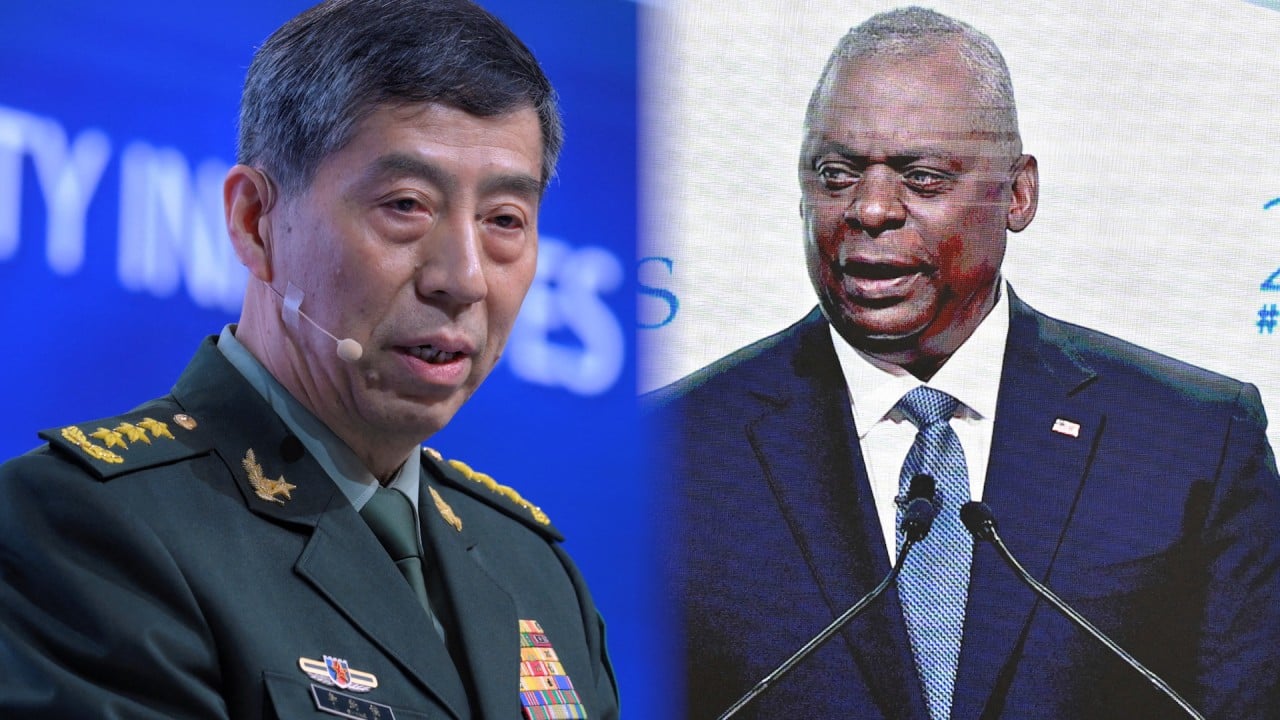
‘What’s next’ as China’s Pacific island diplomatic wins mount?
- After Nauru’s diplomatic switch from Taipei, experts watch for shifts in regional security, balance of power
- But as Beijing seeks to expand its foothold in the region, the path ahead is not straightforward, analysts say
At the start of 2019, Taiwan counted six diplomatic allies among the Pacific Island nations. Barely five years later, that number has been halved as a growing number of small island states switch their diplomatic recognition from Taipei to Beijing, a symbolic move, but one that is widely seen as a sign of Beijing’s growing influence in the region.
But even as Beijing has welcomed these developments, analysts say Beijing’s path to increasing its foothold in Oceania – where Washington is also jockeying for influence – is not straightforward.
For the remote and financially struggling Pacific nations, switching diplomatic allegiance merely reflects their long-standing strategy of weighing what benefits they can extract from the diplomatic tussling rather than having definitively chosen to side with China.
The view from Beijing is clearer.
“From China’s side, I think it can be called a diplomatic victory,” said Professor Izumi Kobayashi of Osaka Gakuin University in Japan, who is president of the Japan Pacific Islands Association.
Australia pledges aid to East Timor in bid to boost diplomatic ties in region
But for an island country, he added, “power relations exist based on geographical and blood ties, and there are no political parties or political ideologies within the country”.
“Therefore, whether it’s Taiwan, [mainland] China, or any other country, it favours the country that provides the most aid,” he said.
This is not the first time that Nauru has swapped diplomatic relations from Taiwan. The nation of fewer than 13,000 people – which has also recognised other disputed regions in southern Europe – had formal ties with Taipei until 2002, then switched to Beijing until 2005, before changing again.
Its recent about-face, however, was preceded by financial difficulty. Last year, Australia announced it would cut the funding it gives Nauru to host an immigration detention centre, blowing a A$125 million (US$82.5 million) hole in its budget.
In January, Taiwanese media reported that Nauru had sought Taipei’s help to plug the gap, but switched to recognise Beijing before Taipei gave an answer.
That money has nonetheless weighed heavily on the foreign policies of Pacific nations, creating openings for the US and China to step in with so-called dollar diplomacy.
Beijing was said to have offered the Solomon Islands US$8.5 million in development funding in return for cutting ties with Taipei, and Beijing’s aid to both Kiribati and the Solomon Islands increased after they switched allegiances, according to the institute’s report.
“Switching diplomatic ties in exchange for promised development, trade or other assistance, can make sense,” Mihai Sora, a research fellow at the Lowy Institute, said.
‘Taiwan card’: island’s rising strategic value tests Beijing’s diplomacy tactics
Beijing’s policy of not officially engaging with countries that recognise Taiwan was “a roadblock” to its ambitions in the Pacific, given that Pacific countries had usually acted with regional consensus, he said.
“The concern for Pacific countries’ traditional security partners like Australia and the US is: what comes next? There is potential for the switch to be a precursor to closer relations in other sectors, such as security, which has immediate consequences for the regional balance of power.”
China has been trying to grow its security presence in Oceania, although the overtures have not always been welcomed or successful. In 2022, Beijing signed a controversial police cooperation pact with the Solomon Islands that alarmed both Washington and Canberra.
This week, Papua New Guinean Foreign Minister Justin Tkachenko confirmed that China had approached it with a similar offer of security cooperation and that the countries were in early talks.
China, Papua New Guinea in talks on policing, security cooperation after riots
But while China has had some success with bilateral agreements with individual countries, it has found it harder to engage the island nations as a bloc. In 2022, Chinese Foreign Minister Wang Yi failed to clinch a collective buy-in from the Pacific nations for a wide-ranging agreement that would have covered everything from military policy to fishing.
In 2021, Chinese businesses in the Solomon Islands were targeted when protests over the decision to end diplomatic relations with Taiwan turned violent. Beijing’s ongoing talks with Papua New Guinea come after riots in the Papuan capital, Port Moresby, in January, in which two Chinese nationals were hurt and several Chinese-owned properties were looted.
“China needs to have police cooperation with Pacific countries to protect its citizens living there, as it does with European countries,” said Yu Lei, chief research fellow at the Research Centre for Pacific Island Countries at Liaocheng University.
But instead of getting embroiled in hegemonic competition, China’s foreign policy goals in the region aimed “to serve its national interest arising from economic cooperation, investment and trade”, he said.
Kobayashi, in Osaka, said Australia was also a loser in Nauru’s shifting alliance to China.
“Islands do not like the way Australia still looks down on island countries as if they were colonies. Therefore, instead of relying solely on support from Australia, they would like to accept support from other countries,” he said, citing the US and Japan along with China.
“However, no matter how diplomatically China infiltrates the island nations, the foundation of its existence as a nation that cooperates with the United States and Australia will not collapse.”


